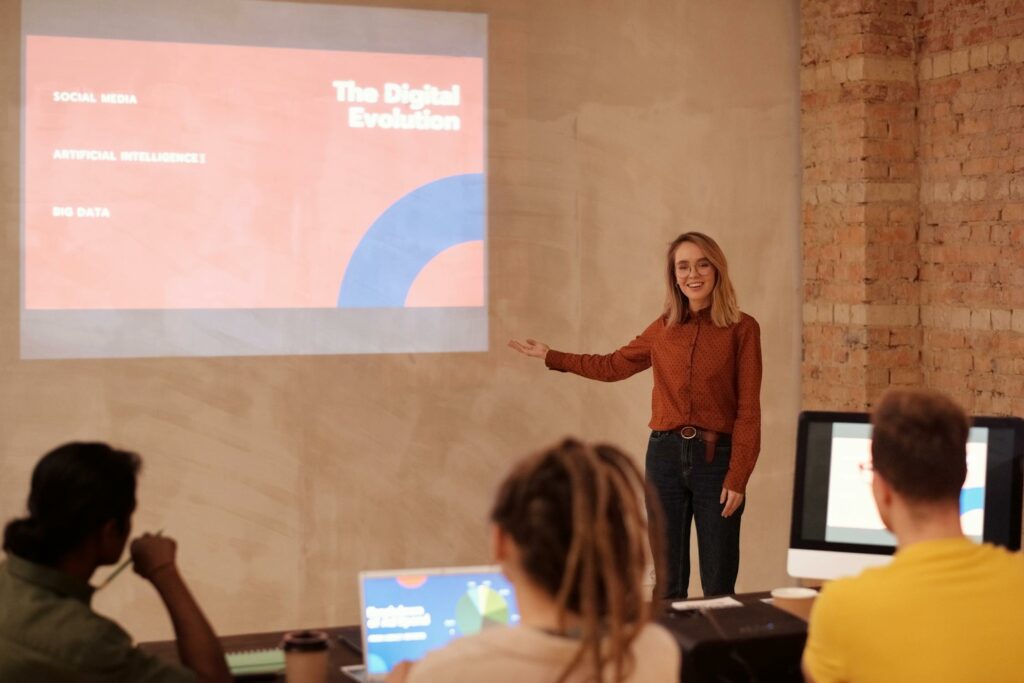In the dynamic landscape of professional development, coaching programs continue to play a pivotal role in empowering individuals and organizations to achieve their goals. As we step into 2024, the ever-evolving nature of the workplace demands a fresh perspective on creating and maintaining successful coaching programs.
This article explores key strategies and considerations to ensure the effectiveness of your coaching program in the current year, providing a comprehensive guide for coaching businesses looking to adapt and thrive in the face of ongoing changes.
1. Leverage technology for personalization
In 2024, the integration of advanced technologies allows for highly personalized coaching experiences. You can utilize digital coaching platforms with artificial intelligence (AI) and machine learning to analyze individual strengths, weaknesses, and learning preferences. This data-driven approach ensures that coaching sessions are tailored to the unique needs of each participant, enhancing engagement and overall program effectiveness.
Implementing technology in coaching programs involves not only selecting the right tools but also fostering a tech-friendly culture:
- Encourage participants and coaches to embrace digital platforms for communication, feedback, and collaborative learning.
- Virtual reality (VR) and augmented reality (AR) technologies can also be incorporated to simulate real-world scenarios, providing a richer and more immersive coaching experience.
The shift towards a more personalized and tech-driven coaching landscape in 2024 reflects a commitment to staying at the forefront of innovation, ensuring that coaching programs remain relevant and impactful in an era dominated by digital transformation.
2. Embrace virtual and hybrid models
The global shift towards remote and hybrid work arrangements necessitates a re-evaluation of coaching program formats. Leverage virtual platforms for coaching sessions, providing flexibility and accessibility for participants across diverse locations. Incorporating a mix of in-person and virtual coaching experiences ensures a well-rounded program that caters to the evolving work landscape.
Virtual coaching brings forth unique challenges and opportunities. Coaches must adapt their methodologies to the virtual environment, ensuring that the absence of physical presence does not hinder the establishment of strong rapport and effective communication.
Furthermore, the hybrid model allows coaches to maintain a sense of connection and community while accommodating the preferences and needs of a diverse workforce.
3. Focus on well-being and resilience
With an increased awareness of mental health and well-being, successful coaching programs in 2024 prioritize the holistic development of individuals. Include modules that address stress management, resilience-building, and work-life balance. A coaching program that considers the well-being of participants contributes not only to professional growth but also to a healthier and more motivated workforce.
Organizations and coaching businesses alike are recognizing that employee well-being is integral to productivity and long-term success. In 2024, coaching programs go beyond traditional skill development and career advancement, incorporating elements that promote emotional intelligence, mindfulness, and strategies for managing stress in the rapidly changing professional landscape.
As a coach, you must be able to recognize signs of burnout and provide resources to help participants navigate challenges related to mental health.
4. Continuous learning and adaptability
The rapid pace of change in the professional world demands a coaching program that emphasizes continuous learning and adaptability.
a. Continuous learning for coaches:
This is important if you run a coaching business with multiple associate coaches. In 2024, successful coaching programs integrate ongoing training not only for participants but also for coaches to ensure they remain current in their knowledge and methodologies. Regular workshops, webinars, and collaborative learning experiences contribute to a community of practice where coaches can share insights and strategies for addressing emerging challenges.
b. Continuous learning for participants:
Participants are encouraged to adopt a growth mindset, viewing challenges as opportunities for learning and development. The emphasis on continuous learning not only enhances the effectiveness of coaching interventions but also creates a culture of innovation and adaptability within the organization.
5. Diversity, Equity, and Inclusion (DEI)
In 2024, a successful coaching program goes beyond traditional approaches by actively incorporating diversity, equity, and inclusion principles. A coaching business must tailor coaching methodologies to address the unique challenges faced by individuals from various backgrounds, fostering an inclusive environment that promotes equal opportunities for growth.
The importance of DEI in coaching programs is underscored by the recognition that a diverse workforce brings a variety of perspectives, experiences, and ideas. As a coach you must be sensitive to cultural nuances and create a safe space where individuals from all backgrounds feel heard and valued.
Inclusivity in coaching extends beyond participant demographics to encompass a diversity of coaching approaches and methodologies. By embracing a broad spectrum of coaching styles, you can ensure that your coaching programs are adaptable and effective for a wide range of individuals with diverse needs and aspirations.
6. Measure and demonstrate ROI
Accountability and measurement are key components of a successful coaching program. Implement tools and metrics to track the return on investment (ROI) of coaching initiatives. Whether through increased employee engagement, improved performance metrics, or other relevant indicators, demonstrate the tangible impact of your coaching on individual and organizational success.
In 2024, organizations are placing a heightened emphasis on the quantifiable outcomes of coaching programs. Coaches and participants should collaboratively establish clear goals and key performance indicators (KPIs) at the onset of the program. Regular assessments and evaluations ensure that the coaching program remains aligned with organizational objectives and contributes measurably to professional and personal development.
The ability to demonstrate ROI not only justifies the investment in coaching programs but also provides valuable insights for continuous improvement.
7. Agile coaching practices
Adopt agile coaching practices to align with the dynamic nature of the modern workplace. Coaches should iterate and adapt coaching approaches based on feedback and changing circumstances. This flexibility ensures that coaching programs remain relevant and effective in the face of evolving challenges.
Agile coaching involves a mindset of continuous improvement and responsiveness to change. You are empowered to pivot your strategies based on real-time feedback from participants and organizational shifts. Regular retrospectives and feedback loops contribute to a culture of continuous improvement, allowing coaching programs to evolve and adapt alongside the ever-changing professional landscape.
The agile approach extends beyond individual coaching sessions to encompass the overall design and structure of coaching programs. By fostering an agile mindset, you can ensure that coaching remains a dynamic and responsive tool for driving individual and organizational success in 2024 and beyond.
Conclusion
As we navigate the complexities of the professional landscape in 2024, building a successful coaching program requires a forward-thinking and adaptable approach. By leveraging technology, embracing virtual and hybrid models, prioritizing well-being, fostering diversity and inclusion, and maintaining a commitment to continuous learning, coaching businesses can create coaching programs that empower individuals to thrive in the ever-changing world of work. The integration of agile coaching practices and a rigorous focus on measuring and demonstrating ROI solidify coaching as a strategic asset in achieving organizational success in the years to come.

Content Marketing Consultant @ Simply.coach
Vaidehi is a content marketing consultant with a decade’s experience handling over 80 brands and multiple award-winning campaigns under her belt. When not working, you’ll find Vaidehi spending time with family, binge watching Netflix shows, and baking.
Read More:
Harnessing Coaching Software in Running Group Coaching Engagements: A Comprehensive Guide
7 Best Online Billing Software & Tools for Executive Coaches
The comprehensive client onboarding form template for relationship coaches
The comprehensive client onboarding form template for relationship coaches
About Simply.Coach
Simply.Coach is an enterprise-grade coaching software designed to be used by individual coaches and coaching businesses. Trusted by ICF-accredited and EMCC-credentialed coaches worldwide, Simply.Coach is on a mission to elevate the experience and process of coaching with technology-led tools and solutions.









